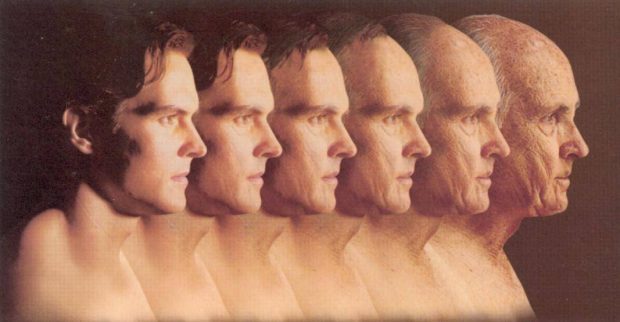The effects of mental health conditions like depression and bipolar disorders go beyond affecting one’s day to day. Research has shown that these conditions may increase the risk for chronic illnesses, like heart disease and diabetes. This is not the only way that mental health conditions can impact one’s well-being.
Research recently presented at the European Congress of Psychiatry in Paris found that those with longstanding mental health conditions are biologically two years older than their actual, chronological age.
Mental Health Conditions Are Aging You
King’s College London researchers Dr. Julian Mutz and Cathryn Lewis analyzed the data of 110,780 participants in the UK Biobank study. The data consisted of 168 different blood metabolites. These are small molecules produced during metabolisms like lipids, cholesterol, and amino acids.
According to their findings, participants with a mental health condition had a “metabolite profile” that suggested that they were older than they are.
Depression and Anxiety Make You Biologically Older
“We found that across these diagnoses, people with a history of mental illness had an older biological age than their actual age.” Dr. Mutz, The Telegraph
Dr. Mutz and his team also found that the differences were largest for people with bipolar disorder and smallest for people with anxiety disorders.
Mutz revealed that people with bipolar disorder were around two years biologically older than their chronological age, whereas people with depression were about one year biologically older and those with anxiety disorder were 0.7 years biologically older.
A report by the Lancet concluded that people with severe mental illnesses have a higher mortality rate than the general population. Mutz and his team believe their findings may help explain why this is.
How does mental health age you?
Speaking to The Telegraph, Dr. Mutz said that there exist several plausible pathways linking psychiatric disorders to accelerated biological aging.
These factors can be lifestyle-based, biological, and psychosocial, and in individuals with mental illnesses, these factors may influence their biological aging and health.

“I would speculate that it is a mutually reinforcing process, i.e. mental illness negatively impacts aging, and faster biological aging and poor health in turn negatively impacts mental health,” says Dr. Mutz.
That said, Mutz does point out that more data is required to measure biological age over time repeatedly. Additionally, their findings have yet to be published in a journal, but they hope to submit the work for publication in the next few months.
In the meantime, Mutz believes that their findings are reason enough for doctors to begin tracking the metabolite profiles of patients with mental disorders. In doing so, they can then use changes in such profiles to gauge the effectiveness of health interventions.
What is my biological age?
You know which year you were born, but deciphering your biological age isn’t as easy. While there are companies that exist to help provide a figure, there are a few signs and symptoms that show your body is aging faster than you are. These include:
- Hair loss
- Easily bruising
- Formation of wrinkles and fine lines
- Reduced hand grip strength
- Abdominal weight gain
- Dry skin
- Poor sleep
- Fatigue
- Poor fitness levels
How can I reverse my biological age?
You can slow this process down by:
- Adopting a plant-based diet
- Getting enough exercise
- Prioritizing quality sleep
- Managing and reducing stress levels
Depression and anxiety can accelerate the aging process, impacting both our emotional well-being and physical health. However, there’s hope. Transcranial Magnetic Stimulation (TMS) therapy offers a non-invasive treatment option. By stimulating specific brain areas, TMS therapy can alleviate symptoms, promote mental well-being, and potentially reverse the biological effects of aging associated with these conditions. Prioritizing mental health and exploring innovative treatments like TMS therapy can improve overall well-being, especially for older adults.
Want to know more?
Mental health disorders aren’t the only factors accelerating biological aging. For instance, cellular senescence has been linked to many issues, including inflammation and other age-related diseases such as heart disease, dementia, and cancer.
MAIN IMAGE: hikrcn/shutterstock
References
Melo, A. P. S., Dippenaar, I. N., Johnson, S. C., Weaver, N. D., de Assis Acurcio, F., Malta, D. C., Ribeiro, A. L. P., Júnior, A. A. G., Wool, E. E., Naghavi, M., & Cherchiglia, M. L. (2022). All-cause and cause-specific mortality among people with severe mental illness in Brazil’s public health system, 2000-15: a retrospective study. The lancet. Psychiatry, 9(10), 771–781. https://doi.org/10.1016/S2215-0366(22)00237-1



![women [longevity live]](https://longevitylive.com/wp-content/uploads/2020/01/photo-of-women-walking-down-the-street-1116984-100x100.jpg)










